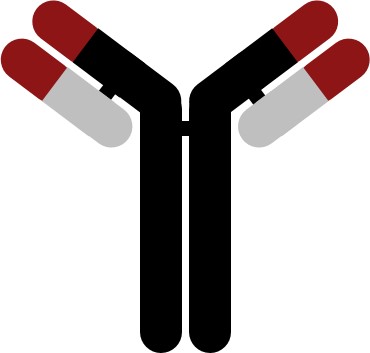Monoclonal Antibody May Serve as Treatment for Malaria
A study published in Nature Medicine examines a monoclonal antibody isolated from the blood of individuals vaccinated for malaria and its potential role in preventing infection from tropical diseases.
Malaria is a life-threatening blood disease that is caused by the Plasmodium parasite and transmitted to humans through Anopheles mosquito bite.
After an infected mosquito bites a human, the parasites will multiply in the host's liver where it can infect and destroy red blood cells. Ina few places, malaria can be treated and controlled under early diagnosis, however, not all countries have the resources to do this effectively. At the present moment, no vaccine has been approved for use in the United States or globally, although one is licensed in Europe. Now, only a single malaria vaccine, known as RTS,S, has moved on to Phase 3 clinical trials.
The goal was to identify a binding site on circumsporozoite (CSP), which is a protein found on the surface of the malaria parasite. The antibody that was identified was CIS43 and it’s believed thought that it could be of protection from malaria for up to six months, which shows improvement over existing preventative malarial drugs.
The researched team began their studies by testing the blood of individuals immunized with an experimental malaria vaccine, PfSPZ, which includes weakened malarial parasites. The blood test resulted in the identification of the antibody in question, CIS43 which “conferred high-level, sterile protection in two different mouse models of malaria infection,” noted the authors in their study “The affinity and stoichiometry of CIS43 binding to PfCSP indicate that there are two sequential multivalent binding events encompassing the repeat domain. The first binding event is to a unique 'junctional' epitope positioned between the N terminus and the central repeat domain of PfCSP. Moreover, CIS43 prevented proteolytic cleavage of PfCSP on PfSPZ. Analysis of crystal structures of the CIS43 antigen-binding fragment in complex with the junctional epitope determined the molecular interactions of binding, revealed the epitope's conformational flexibility and defined Asn-Pro-Asn (NPN) as the structural repeat motif.”

“The group used excellent structural and biophysical methods to analyze the binding of the antibody to the protein target in order to explain the antibodies’ neutralizing capacity,” explained Dr. Sean Murphy designer of the diagnostic tool used in the research study. “This is a big deal because neutralizing monoclonal antibodies have transformed the approach to HIV, and the possibility exists that they will do the same for malaria,” he added.
It is important to note that these studies where performed on animal models. Investigators hope that they can take these studies and move them a step up for a 2019 clinical trial.
Sources: Medical News Today, Drug Discovery News









